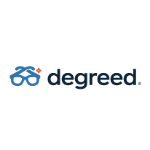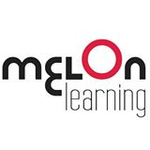Description

Degreed

Melon LMS
Comprehensive Overview: Degreed vs Melon LMS
Degreed
a) Primary Functions and Target Markets:
-
Primary Functions: Degreed is a learning experience platform (LXP) designed to integrate and curate learning content from various sources, providing personalized learning experiences. It helps organizations manage and track employee learning and skill development through formal and informal learning pathways, including videos, courses, articles, and more. Degreed focuses on upskilling and reskilling employees, aligning learning with business goals.
-
Target Markets: The platform primarily targets large enterprises and organizations looking to enhance their workforce's skills. Industries that often use Degreed include technology, finance, healthcare, and professional services, with a focus on businesses that prioritize continuous learning and development.
b) Market Share and User Base:
Degreed is a leader in the LXP market, recognized for its comprehensive capabilities and flexibility in integrating with various learning and HR systems. It has a substantial user base globally, particularly among Fortune 500 companies. However, exact market share data is often proprietary and may require market research reports for specifics.
c) Key Differentiating Factors:
- Integration and Ecosystem: Degreed stands out for its ability to integrate seamlessly with a wide range of enterprise systems, offering a holistic view of workforce learning.
- Extensive Content Library: Access to a vast amount of learning content from multiple providers, helping organizations curate a diverse learning experience.
- Focus on Skills: Heavy emphasis on skills development and tracking, with tools to measure skill levels and progress over time.
Melon LMS
a) Primary Functions and Target Markets:
-
Primary Functions: Melon LMS is a learning management system (LMS) designed to facilitate the administration, documentation, tracking, reporting, and delivery of educational courses or training programs. It supports content creation, user management, assessment, and certification.
-
Target Markets: It targets small to medium-sized businesses (SMBs) and educational institutions. Also popular among non-profit organizations and corporate sectors that need straightforward and customizable e-learning solutions.
b) Market Share and User Base:
Melon LMS caters to a niche market compared to larger players like Degreed. It has a steady presence among SMBs and localized markets. The platform's user base is smaller and more specific to organizations seeking customizable and cost-effective learning solutions.
c) Key Differentiating Factors:
- Customization and Flexibility: Offers high customization levels to adjust to specific organizational needs and branding requirements.
- User-Friendly Interface: Known for its simplicity and ease of use, making it accessible for organizations with limited technical expertise.
- Cost-Effective: Provides competitive pricing, making it attractive for SMBs seeking efficient training solutions without high costs.
SC Training (Formerly EdApp)
a) Primary Functions and Target Markets:
-
Primary Functions: SC Training is a micro-learning platform offering mobile-first e-learning solutions. It specializes in creating, delivering, and managing microlearning courses that are engaging and accessible. Features include mobile compatibility, gamification, and real-time analytics.
-
Target Markets: The platform is geared towards industries such as retail, hospitality, healthcare, and manufacturing. It primarily targets organizations interested in providing quick, effective training to a dispersed or deskless workforce.
b) Market Share and User Base:
Since SC Training specializes in mobile learning and microlearning, it occupies a specific niche. While not as large as comprehensive LXPs or LMSs, it has significant traction in industries where mobile access and learner engagement are crucial.
c) Key Differentiating Factors:
- Mobile-First Approach: Strong emphasis on mobile usability, making it ideal for frontline workers who need training on-the-go.
- Microlearning Focus: Offers a library of micro-courses that are short and engaging, suitable for just-in-time learning.
- Gamification: Incorporates gamification elements to increase learner engagement and motivation.
Comparison
- Degreed excels with its broad integration capabilities and focus on skills development, making it ideal for large, skill-focused enterprises.
- Melon LMS appeals to smaller organizations needing customizable and straightforward LMS solutions at a lower cost.
- SC Training distinguishes itself with mobile-first, microlearning approaches suitable for businesses with workers who need quick, engaging training solutions.
Each platform serves specific needs, with differences essentially boiling down to target audience, primary use case, and technological capabilities.
Contact Info

Year founded :
2012
+1 800-311-7061
Not Available
United States
http://www.linkedin.com/company/degreed

Year founded :
Not Available
Not Available
Not Available
Not Available
Not Available
Feature Similarity Breakdown: Degreed, Melon LMS
To provide a comparison among Degreed, Melon LMS, and SC Training (formerly EdApp), we’ll break down their similarities and differences based on their core features, user interfaces, and unique attributes. Keep in mind that features and UI experiences can be updated regularly, so this is a general overview based on the latest information available as of October 2023.
a) Core Features in Common
-
Learning Management: All three platforms offer management capabilities for courses and learning materials, allowing administrators to organize content and track learner progress.
-
Content Delivery: They support various formats of content delivery, including videos, documents, and interactive elements to engage learners.
-
Assessment Tools: Each platform features quizzes, tests, or assessments to allow instructors to evaluate the learners' understanding of the material.
-
Analytics and Reporting: All platforms provide analytics features to track and report on learner progress and engagement, which is crucial for administrators.
-
Mobile Compatibility: There is a strong emphasis on mobile-friendly user experiences, allowing learners to access content from any device.
-
Customization of Learning Paths: They offer the ability to create personalized learning paths or development tracks for individuals or groups.
b) User Interface Comparisons
-
Degreed: Known for its user-centric design, Degreed offers an intuitive and clean interface with a focus on ease of navigation and user personalization. It often boasts a modern aesthetic with dashboards that provide quick access to learning activities and recommendations.
-
Melon LMS: Melon LMS offers a more traditional LMS interface. While functional, it might not be as visually modern as Degreed, but it provides smooth navigation and clean organization of courses and modules. It’s typically structured to support ease of use for both instructors and learners.
-
SC Training (EdApp): EdApp is designed with a mobile-first approach. Its interface is highly intuitive, with a focus on microlearning modules. The UI is vibrant and interactive, built to engage users in short, concise learning bursts. It offers a simple, yet engaging user experience.
c) Unique Features
-
Degreed:
- Skill Development Tracking: In addition to traditional LMS features, Degreed provides robust tracking and benchmarking capabilities for personal skill development.
- Integration Capabilities: Degreed offers extensive integrations with a variety of external content providers and applications, making it a versatile tool for companies with diverse learning needs.
-
Melon LMS:
- Scalability: Melon LMS often emphasizes its ability to scale efficiently for large organizations and supports multi-tenancy for complex implementations.
- Compliance Features: It typically includes strong compliance training and certification tracking features, making it suitable for industries with strict regulatory requirements.
-
SC Training (EdApp):
- Microlearning Focus: EdApp stands out for its microlearning approach, delivering content in short, focused bursts designed for fast-paced consumption.
- Gamification: Offers comprehensive gamification features, including leaderboards and rewards to incentivize learning and engagement.
- Rapid Authoring: It provides a rapid authoring tool that enables quick creation and deployment of course content, which is particularly useful for dynamic learning environments.
These platforms cater to different needs and preferences, so the best choice will depend on the specific requirements of the organization or user. Each has strengths that make it unique, whether it’s Degreed's focus on skill development, Melon LMS's scalability and compliance features, or SC Training's emphasis on microlearning and gamification.
Features

User-Friendly Learning Experience
Diverse Content Integration
Community and Collaboration
Robust Analytics and Reporting

Comprehensive Course Management
Support and Resources
User-Friendly Interface
Performance Tracking
Engagement and Collaboration
Best Fit Use Cases: Degreed, Melon LMS
Degreed, Melon LMS, and SC Training (formerly EdApp) each serve distinct niches and preferences in the learning management system (LMS) market:
a) Degreed:
-
Best Fit Use Cases:
- Large Enterprises: Degreed is ideal for large organizations looking to foster a culture of continuous learning and development. Its ability to integrate with numerous content providers and track informal learning activities makes it suitable for businesses prioritizing employee growth and skills development.
- Learning Ecosystems: Companies that require a comprehensive learning ecosystem with features beyond traditional LMS capabilities, such as skill analytics, personalized learning paths, and content curation, often choose Degreed.
- Organizations Focused on Skills Development: Firms emphasizing the development of skills over mere completion of courses find Degreed's competency-based model advantageous.
-
Industry Vertical/Application:
- Particularly beneficial in technology, finance, and consulting sectors where upskilling and reskilling are crucial.
- Suitable for companies with a global workforce requiring diverse and scalable learning solutions.
b) Melon LMS:
-
Best Fit Use Cases:
- SMEs and Mid-sized Companies: Melon LMS is a great option for small to medium-sized enterprises looking for a cost-effective and straightforward learning management system without the complexity of advanced features.
- Organizations Looking for Customization: It offers flexible configuration options, allowing organizations to tailor the platform according to specific training needs and branding requirements.
- Internal Employee Training: Well-suited for internal training purposes where ease of use and rapid deployment are priorities.
-
Industry Vertical/Application:
- Ideal for sectors such as retail, healthcare, and service-oriented businesses where straightforward training delivery and user-friendly interfaces are important.
- A fit for companies that prefer a no-frills approach to LMS without sacrificing essential functionality.
c) SC Training (Formerly EdApp):
-
Best Fit Use Cases:
- Mobile-First Learning: SC Training excels in environments where mobile accessibility is critical. Organizations focusing on microlearning or those with a mobile-centric workforce often prefer it.
- Rapid Course Deployment: Ideal for companies needing to quickly create, adjust, and distribute training content, such as compliance training or product updates.
- Blended Learning Models: Organizations that employ a blend of in-person and online training can effectively use SC Training to supplement their instructional strategies.
-
Industry Vertical/Application:
- Effectively serves industries with a high turnover or dispersed workforce, such as hospitality, retail, and logistics.
- Suitable for businesses of all sizes but particularly appealing to those with a decentralized workforce requiring flexible learning solutions.
d) How These Products Cater to Different Industry Verticals or Company Sizes:
- Degreed: Targets large enterprises and industries where skill evolution is a constant, offering scalability and integration capabilities suitable for complex, global operations.
- Melon LMS: Fits mid-sized and smaller organizations across varied industries by providing a balance between functionality and affordability without overwhelming users with excessive features.
- SC Training (Formerly EdApp): Appeals to industries needing rapid, mobile-compatible learning solutions, supporting both small businesses and larger organizations through scalable microlearning capabilities.
Each system caters to different needs based on company size, learning strategy, and industry-specific requirements, allowing businesses to select a solution aligned with their training goals and operational context.
Pricing

Pricing Not Available

Pricing Not Available
Metrics History
Metrics History
Comparing teamSize across companies
Conclusion & Final Verdict: Degreed vs Melon LMS
When assessing Degreed, Melon LMS, and SC Training (formerly EdApp), it is essential to weigh factors such as feature offerings, user experience, integration capabilities, pricing, and support services. Below is an evaluation based on these considerations:
Conclusion and Final Verdict
a) Considering all factors, which product offers the best overall value?
SC Training (Formerly EdApp) offers the best overall value for organizations looking for a user-friendly, mobile-centric learning platform. It is particularly advantageous for companies that prioritize ease of use, scalability, and a strong focus on microlearning. However, the best choice ultimately depends on the specific needs and objectives of the organization.
b) Pros and Cons of Choosing Each Product
Degreed
-
Pros:
- Focus on lifelong learning with a personalized learning experience.
- Robust skill-tracking and analytics capabilities.
- Extensive content library and ability to aggregate learning resources from various providers.
- Strong integration options with other HR and talent systems.
-
Cons:
- Can be overwhelming for smaller organizations due to its extensive feature set.
- Higher cost compared to simpler tools, which may not be justifiable for all organizations.
Melon LMS
-
Pros:
- Cost-effective solution with essential LMS features.
- Customizable and flexible to fit specific organizational needs.
- Suitable for small to medium-sized businesses looking for a straightforward LMS.
-
Cons:
- Limited advanced features compared to competitors.
- May require more effort for integration with other systems.
SC Training (Formerly EdApp)
-
Pros:
- Strong emphasis on microlearning and mobile accessibility, perfect for modern, on-the-go learners.
- Intuitive user interface with ease of course creation and deployment.
- Effective for training distributed workforces and engaging learners with spaced repetition.
-
Cons:
- May not have extensive features needed for enterprise-level integration.
- Focus on microlearning could be limiting for organizations looking for more comprehensive training solutions.
c) Recommendations for Users
-
Degreed vs. Melon LMS: Choose Degreed if you are a larger organization with the need for robust analytics, skill-tracking, and an integrated learning ecosystem. Opt for Melon LMS if you are a smaller organization looking for an affordable and easy-to-implement solution that covers the basics of learning management.
-
Degreed vs. SC Training (formerly EdApp): Select Degreed if comprehensive skill development and lifelong learning are key to your strategy. Go for SC Training if your focus is on delivering engaging, mobile-first microlearning content effectively and if you prioritize a user-friendly experience.
-
Melon LMS vs. SC Training (formerly EdApp): Opt for Melon LMS if your priority is a cost-effective solution with flexible customization for standard LMS functionalities. Choose SC Training if your organization benefits from microlearning and requires a highly accessible platform catering to mobile learners.
Ultimately, the decision should be guided by the organization's specific learning strategy, user needs, and budget constraints. Evaluate which platform aligns best with your strategic goals and offers the features necessary to drive learner engagement and performance improvement.
Add to compare
Add similar companies



